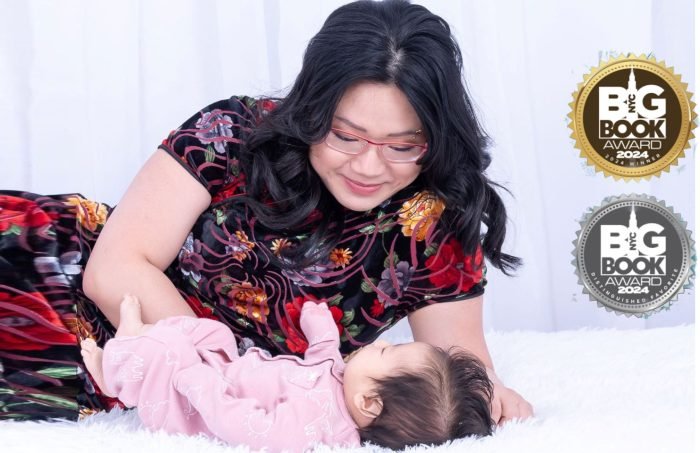Life for new moms is beautiful but pretty overwhelming too. Whether you’re a new mom or supporting one, discover actionable tips, essential healthcare insights, and the power of community in ensuring a positive start to motherhood.
Postnatal Wellbeing: A Healthy and Happy Transition into Motherhood
As a new mom, caring for your newborn is only half the work you’ve got. You also have to care for yourself. So let’s have an honest conversation about postnatal well-being—because you deserve as much love, support, and attention as their babies.

What is Postnatal Wellbeing?
Postnatal well-being is about your mental health, emotional balance, and overall sense of wellness. The postnatal period brings changes to your body, mood, and energy levels. For many women, the first few weeks are overwhelming. Between sleepless nights and the demands of a newborn, it’s easy to forget about your own needs. But prioritizing your well-being isn’t selfish— it’s a necessity. A healthy, happy mom is the cornerstone of a thriving family.
The Baby Blues: A Temporary Condition
Have you ever heard the term “baby blues”? It’s a temporary condition that affects many women in the first week or two after giving birth. You might feel tearful, overwhelmed, or unusually anxious. Don’t worry—it isn’t a reflection of your abilities as a mother. It’s just your body adjusting to the hormonal shifts after pregnancy and birth.
While the baby blues typically subside on their own, it’s important to talk about your feelings with family members or close friends. Sometimes, sharing your experience is all it takes to feel lighter.
Recognizing Postnatal Depression
For some moms, the emotional challenges don’t fade, impacting their emotional health significantly. Postnatal depression (PND) is more intense and lasts longer than the baby blues. It’s a real, treatable condition that affects up to 15% of new mothers. Symptoms often include:
- Persistent sadness or feeling overwhelmed
- Loss of interest in things you used to enjoy
- Difficulty bonding with your newborn baby
- Guilt or a sense of failure as a mother
If that sounds familiar, please know you’re not alone. The World Health Organization emphasizes the importance of emotional support and seeking help early. Talk to your doctor, reach out to support groups, or lean on your partner and other family members.
Practical and Emotional Support: Why It’s a Lifeline
Support women during motherhood because it isn’t meant to be a solo journey. You deserve a village—people who’ll provide practical and emotional support. Here’s how to build and lean on your support network:
- Family and Friends: Whether it’s help with laundry or just someone to talk to, don’t hesitate to ask for help.
- Support Groups: Connect with other women who’ve been through similar experiences. That could be incredibly comforting for you.
- Health Care Providers: Your doctor or caregiver might guide you toward resources like counseling or therapy.
Physical Recovery and Self-Care After Birth
Your body just performed a miracle, but it also went through changes during pregnancy and childbirth. Here are some ways to support your physical recovery:
- Rest: Easier said than done, right? But even short naps do great things for your well-being.
- Healthy Diet: Nourish your body with wholesome foods to regain strength and energy.
- Postnatal Exercises: Gentle movements, like walking or postnatal yoga, are great for recovery and mood.
Managing Common Postnatal Challenges
Life-threatening complications during childbirth are rare, but pregnancy complications during the perinatal period, such as severe bleeding or high blood pressure, require special attention. If you experience unusual pain, heavy bleeding, or any early signs of infection, contact a healthcare provider immediately.
Mental Health Matters: Break the Stigma
Did you know that mental health problems are real concerns for new moms? Conditions like postnatal depression and perinatal depression affect women worldwide, regardless of their background.

Risk Factors to Watch For
While any mom might experience challenges, certain risk factors increase vulnerability:
- A traumatic birth experience
- Lack of family support
- A history of mental health conditions like antenatal depression
Your Postnatal Wellbeing Plan: Set Realistic Expectations
Motherhood is a beautiful mess. Some days you’ll feel like a superhero, and other days, you might wonder if you’re doing anything right. That’s okay. Give yourself grace and remember that no one gets it perfect.
Prioritize Self-Care
Self-care isn’t a luxury—it’s a necessity. Whether it’s taking a warm bath, journaling, or simply enjoying a quiet cup of tea, find little moments to nurture yourself.
Lean on Your Community
No mother should face the postnatal period alone. Call for practical help with household chores or have someone to talk to about your emotions. Family and friends are often great here. Simple acts of kindness, like bringing over a meal or watching the baby for an hour to help you get some rest, should be good for you.
Practical and Emotional Support: A Lifeline for New Moms
New mothers often underestimate how much practical and emotional support they’ll need. Practical support means lending a hand with daily tasks like cooking, cleaning, or even running errands. Emotional support, on the other hand, is about being present. Sometimes, that’s as simple as sitting with a new mom while she vents or cries—it’s about creating a safe space where she feels seen and heard.
Studies show that support groups, where moms share their experiences, often lead to improved emotional wellbeing for other members. When you feeling connected to others who understand what you’re going through, it reduces feelings of isolation.
Building a Foundation of Self-Care for New Moms
Amid all the baby’s needs, it’s easy to forget that moms need care too. Start small: prioritize good nutrition, carve out moments for enough rest, and don’t hesitate to ask for extra support when you need it.
If you’re struggling to find time for yourself, remember: even five minutes spent enjoying a cup of tea, reading a book, or simply breathing deeply might be all you need at that moment. The postnatal period is a time of healing and adjustment, and your wellbeing directly impacts your baby’s newborn health. Family planning is also something to consider in that period.
Excellent Healthcare and Postnatal Wellbeing
Let’s not forget the key role healthcare providers play. From home visits to routine postpartum visits, consistent care gives new mothers access to the resources they need.
Beyond the Postpartum Period
The postpartum period may last a few months, but the journey of motherhood is ongoing. As you settle into your role as a mom, the focus shifts to maintaining long-term mental health and fostering a supportive environment for both mom and baby.
Here’s where continued practical and emotional support becomes invaluable. You’re not to merely survive those first weeks— you should thrive in your new life as a mom.
